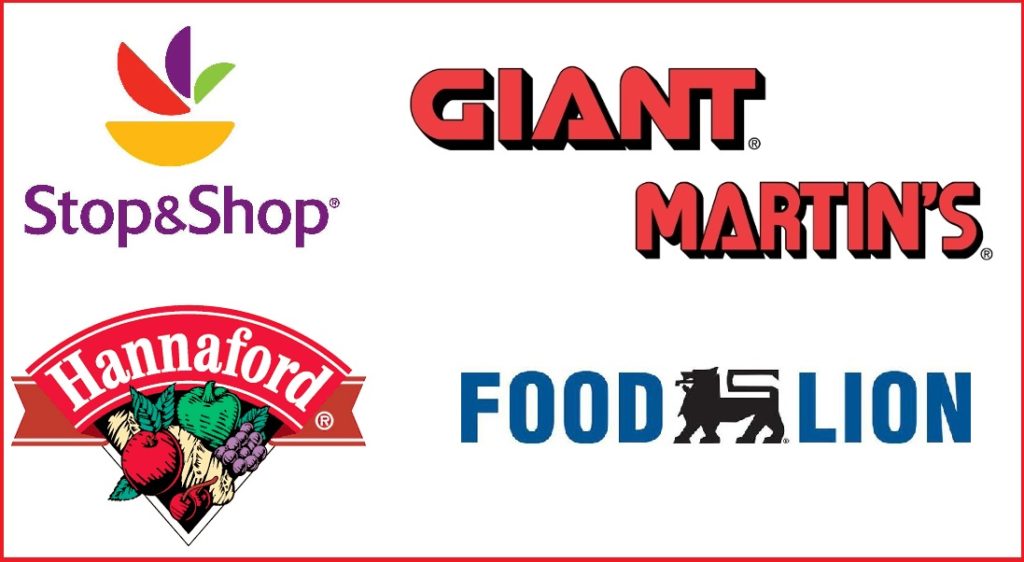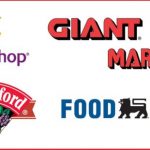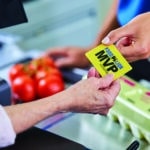
Supermarket merger mania continues, and this time it’s not just the Krogers and Albertsons of the world that are looking to expand. The parent companies of Food Lion and Hannaford, and Stop & Shop and Giant, are now talking about a possible combination that could create one of the largest supermarket chains in the country.
And if it happens, shoppers might actually be pleased with the way it all turns out.
Following some speculation over the weekend, Ahold and Delhaize confirmed this morning that they’re in preliminary discussions to combine their two companies. Ahold is the Netherlands-based owner of several European and American grocery chains, including Stop & Shop, two different Giant divisions and Martin’s, all of which operate in the Northeast. Delhaize, based in Belgium, also owns several European and American supermarkets, including Hannaford in the Northeast and Food Lion, primarily in the Southeast.
You’ll be forgiven if you’re only vaguely aware of either company. Several of the aforementioned grocery chains have had a number of owners over the years, and the current proprietors located an ocean away are only the latest.
But combined, the two companies could create one of the largest grocery chains in the country, with just over 2,000 stores – a shade fewer than Albertsons. It would also be the largest supermarket operator on the East Coast, with locations from Maine all the way down to Georgia. And depending on whose policies and procedures take precedence in a combined company, it could end up being a win for shoppers.
Delhaize has been aggressive lately in improving its American stores. When it couldn’t stabilize its Sweetbay stores in Florida, it got rid of them a couple of years ago, along with the smaller Southern chains Harveys and Reid’s. A year later, it bailed on its Bottom Dollar discount grocery chain. That allowed the company to hone in on Food Lion and Hannaford, refreshing and rebranding the stores one by one with changes both large (improved selection, store layouts and customer service) and small (special blue plastic grocery bags meant to signify refrigerated and frozen items that need to be put away first when you get home).
Ahold might be able to learn a thing or two from its potential partner. Each of its American grocery chains ranked near the bottom of Consumer Reports’ recent survey on the best and worst supermarkets in the country.
But it’s Ahold that’s the larger company. So analysts believe a potential merger would be more like Ahold acquiring Delhaize, than a merger of equals. So would Ahold drag down Delhaize and undo its improvements, or rather learn from its potential partner and improve its own stores?
One thing it could do, is improve Food Lion and Hannaford’s coupon policies.
Despite the hotly competitive grocery environment on the East Coast, Food Lion and Hannaford’s coupon policies are pretty basic. Neither of them offers double or triple coupons, even though many of their competitors do. They don’t accept competitors’ coupons. And neither allows coupon stacking – you can use a manufacturer’s coupon on one item, or a store coupon, but not both.
In contrast, all of Ahold’s U.S. stores double coupons, most up to 99 cents. Several Giant locations accept competitors’ coupons, and Stop & Shop and most Giants also allow coupon stacking (they even allow a triple stack, of a paper store coupon, digital store coupon and a manufacturer coupon). So Food Lion and Hannaford might have a little something to learn from their possible corporate partners.
All told, Ahold and Delhaize’s U.S. stores are pretty middle-of-the-road shopping options. They don’t operate at the scale of a Kroger or Albertsons, nor do they generate gushing shopper reviews like, say, Wegmans or Publix. One retail observer even predicted recently that if the stores don’t shape up, they’re “just going to fall in the trash can with all the other tired old banners that couldn’t figure it out.”
So maybe the two companies can figure out together what they apparently can’t accomplish separately. Otherwise, supermarket giants like Kroger, Albertsons – and Walmart – might be the only ones able to thrive. Competition may be good for consumers, but in this case, a combined Ahold and Delhaize just might be better than the alternative.









